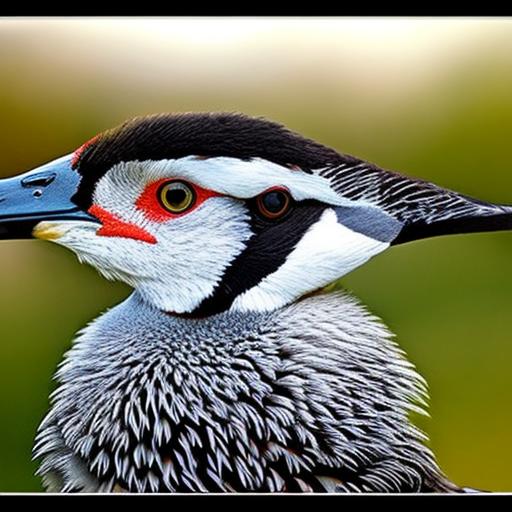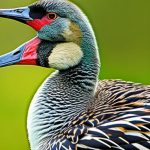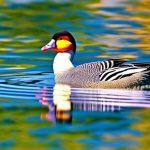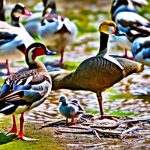Geese invading your yard can be a frustrating and challenging problem to deal with. Not only can they cause damage to your property, but they can also leave behind a mess that is difficult to clean up. Understanding the behavior of geese is crucial in finding effective ways to keep them out of your yard. By implementing the right strategies, you can create a peaceful and goose-free environment.
Key Takeaways
- Geese are social animals that prefer to live in groups and follow a leader.
- Geese invade yards for food, shelter, and nesting sites.
- Physical barriers such as fences and netting can keep geese out of your yard.
- Decoys that resemble predators or other geese can deter geese from entering your yard.
- Sound and light deterrents such as alarms and strobe lights can scare geese away.
Understanding the behavior of geese
Geese are social birds that are known for their strong family bonds and flocking behavior. They are highly adaptable and can be found in a variety of habitats, including urban areas. Geese are migratory birds, meaning they travel long distances during certain times of the year in search of food and suitable nesting sites.
During the breeding season, geese will establish nesting territories near bodies of water. They prefer open areas with good visibility to keep an eye out for predators. Geese are protective of their nests and will aggressively defend them if they feel threatened. They can become particularly aggressive during this time, so it’s important to exercise caution when dealing with nesting geese.
Identifying the reasons why geese invade your yard
There are several reasons why geese may be attracted to your yard. One common reason is the presence of water. Geese need water for drinking, bathing, and finding food sources like aquatic plants and insects. If you have a pond or other water feature in your yard, it may be attracting geese.
Another reason why geese invade yards is the availability of food sources. Geese are herbivores and feed on grasses, grains, and other vegetation. If you have a well-maintained lawn or garden with plenty of grass or plants for them to eat, it may be attracting geese.
Installing physical barriers to keep geese out
One effective way to keep geese out of your yard is by installing physical barriers. Fences or netting can be used to create a physical barrier that prevents geese from entering your property. Make sure the fence is at least three feet high and extends underground to prevent geese from digging under it.
Another option is to install netting over areas where geese are likely to land or graze. This can be particularly effective in protecting gardens or other areas with vegetation that geese may be attracted to. Make sure the netting is securely fastened and does not have any gaps that geese can squeeze through.
Using decoys to deter geese
Using decoys can be an effective way to deter geese from entering your yard. Decoys can include fake predators, such as plastic owls or coyotes, or other animals that geese may perceive as a threat. Place the decoys in areas where geese are likely to land or graze, and move them around periodically to make them appear more realistic.
It’s important to note that decoys alone may not be enough to keep geese away. Geese are intelligent birds and can quickly learn that the decoys pose no real threat. It’s best to combine the use of decoys with other deterrent methods for maximum effectiveness.
Implementing sound and light deterrents

Sound and light deterrents can also be effective in keeping geese away from your yard. Noise makers, such as air horns or motion-activated devices that emit loud sounds, can startle geese and discourage them from staying in your yard. Flashing lights, such as strobe lights or reflective tape, can also be effective in deterring geese.
It’s important to vary the timing and location of sound and light deterrents to prevent geese from becoming accustomed to them. Geese are intelligent birds and can quickly learn to ignore constant or predictable deterrents.
Using natural deterrents such as plants and landscaping
Using natural deterrents can be a more environmentally friendly way to keep geese out of your yard. Certain types of grass, such as tall fescue or Kentucky bluegrass, are less attractive to geese because they have a tougher texture and are less palatable. Planting these types of grass in your yard can make it less appealing to geese.
Landscaping can also be used to deter geese. Creating barriers with shrubs or hedges can make it more difficult for geese to access certain areas of your yard. Additionally, planting native plants that are not attractive to geese can help discourage them from staying in your yard.
Removing food sources to discourage geese
Removing any food sources that may be attracting geese is an important step in deterring them from your yard. This includes removing fallen fruit from trees, cleaning up spilled birdseed or pet food, and regularly mowing and maintaining your lawn to prevent it from becoming overgrown.
It’s also important to avoid feeding geese intentionally. Feeding geese can encourage them to stay in your yard and can lead to an increase in their population. If you encounter geese in public areas, it’s best to avoid feeding them and encourage others to do the same.
Creating designated areas for geese to inhabit
Creating designated areas for geese to inhabit can help keep them out of other areas of your yard. This can be done by providing a suitable alternative habitat, such as a pond or other water source, where geese can find food and water without causing damage to your property.
By creating a designated area for geese, you can help minimize conflicts between humans and geese while still allowing them to inhabit a natural environment. It’s important to note that this method may not completely eliminate the presence of geese in other areas of your yard, but it can help reduce their impact.
Seeking professional assistance for geese removal
If you are having trouble controlling geese in your yard, it may be necessary to seek professional assistance. Wildlife management professionals have the knowledge and experience to effectively remove geese from your property and implement long-term solutions to prevent their return.
Professional assistance may be particularly necessary if you are dealing with a large population of geese or if they are causing significant damage to your property. They can help assess the situation, develop a customized plan for geese removal, and provide ongoing monitoring and maintenance.
Developing a long-term plan for geese control in your yard
Developing a long-term plan for geese control is crucial in maintaining a goose-free environment. Regular maintenance and monitoring are key to preventing geese from returning to your yard. This includes regularly inspecting physical barriers, decoys, and deterrent devices to ensure they are still effective.
It’s also important to stay up-to-date on the latest strategies and techniques for geese control. As geese behavior and populations change, new methods may become available that can help improve the effectiveness of your control efforts.
Dealing with geese invading your yard can be a challenging task, but by understanding their behavior and implementing the right strategies, you can create a peaceful and goose-free environment. Whether it’s installing physical barriers, using decoys, or implementing sound and light deterrents, there are a variety of methods available to keep geese out of your yard.
It’s important to remember that controlling geese requires ongoing effort and maintenance. By developing a long-term plan and seeking professional assistance when necessary, you can effectively manage geese in your yard and prevent them from causing damage or becoming a nuisance. Take action today to control geese in your yard and enjoy a goose-free environment.
If you’re looking for effective ways to keep geese out of your yard, you might also be interested in learning how to convert a shed into a chicken coop. This article from Poultry Wizard provides step-by-step instructions on transforming a shed into a safe and comfortable home for your chickens. By creating a dedicated space for your feathered friends, you can not only keep them protected but also minimize the chances of geese invading your yard. Check out the article here to discover the best way to repurpose a shed into a functional chicken coop.
FAQs
What are some effective ways to keep geese out of my yard?
There are several effective ways to keep geese out of your yard, including installing physical barriers, using repellents, and modifying the landscape.
What are some physical barriers that can be used to keep geese out of my yard?
Physical barriers that can be used to keep geese out of your yard include fences, netting, and bird spikes. These barriers can be installed around the perimeter of your yard or around specific areas where geese tend to congregate.
What types of repellents can be used to keep geese out of my yard?
Repellents that can be used to keep geese out of your yard include visual deterrents, such as scarecrows and reflective tape, as well as auditory deterrents, such as loud noises and predator calls. Chemical repellents, such as Methyl Anthranilate, can also be effective.
How can I modify my landscape to keep geese out of my yard?
Modifying your landscape can be an effective way to keep geese out of your yard. This can include removing sources of food and water, such as bird feeders and standing water, as well as planting vegetation that geese do not like, such as prickly bushes and tall grasses.
Are there any humane ways to keep geese out of my yard?
Yes, there are several humane ways to keep geese out of your yard, including using physical barriers and repellents that do not harm the geese. It is important to avoid using methods that could cause harm or distress to the geese.
Meet Walter, the feathered-friend fanatic of Florida! Nestled in the sunshine state, Walter struts through life with his feathered companions, clucking his way to happiness. With a coop that’s fancier than a five-star hotel, he’s the Don Juan of the chicken world. When he’s not teaching his hens to do the cha-cha, you’ll find him in a heated debate with his prized rooster, Sir Clucks-a-Lot. Walter’s poultry passion is no yolk; he’s the sunny-side-up guy you never knew you needed in your flock of friends!







